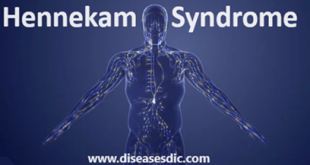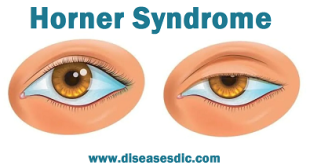Definition
Hunters syndrome is a very rare, inherited genetic disorder caused by a missing or malfunctioning enzyme. In Hunter syndrome, the body doesn’t have enough of the enzyme iduronate 2-sulfatase. This enzyme’s job is to break down certain complex molecules, and without enough of this enzyme, the molecules build up in harmful amounts.
The buildup of massive amounts of these harmful substances eventually causes permanent, progressive damage affecting appearance, mental development, organ function and physical abilities.
Hunter syndrome is far more common in boys. The condition is one type of a group of inherited metabolic disorders called mucopolysaccharidoses (MPSs). Hunter syndrome is also known as MPS II.
There’s no cure for Hunter syndrome. Treatment involves managing symptoms and complications.
History
MPS II is one of the mucopolysaccharide diseases and is also known as Hunter syndrome. It takes its name from Charles Hunter, the professor of medicine in Manitoba, Canada, who first described two brothers with the disease in 1917. MPS II has a wide range of symptoms that vary in severity.
Epidemiology at international level
The estimated incidence of MPS II widely varies. The estimated incidence is 1 case per 34,000 in Israel, 1 case per 111,000 in British Columbia, and 1 case per 132,000 in the United Kingdom. Recent studies from Germany and the Netherlands report an overall incidence of 1 case in 140,000-330,000 live births, and, more specifically, 1 case per 77,000 male births.
Risk factors
There are two major risk factors for developing Hunter syndrome:
Family history: Hunter syndrome is caused by a defective chromosome, and a child must inherit the defective chromosome to develop the disease. Hunter syndrome is what’s known as an X-linked recessive disease. This means that women carry the defective disease-causing X chromosome and can pass it on, but women aren’t affected by the disease themselves.
Sex: Hunter syndrome nearly always occurs in males. Girls are far less at risk of developing this disease because they inherit two X chromosomes. If one of the X chromosomes is defective, their normal X chromosome can provide a functioning gene. If the X chromosome of a male is defective, however, there isn’t another normal X chromosome to compensate for the problem.
Causes of Hunters Syndrome
Hunter Syndrome is caused due to missing or malfunctioning enzyme called iduronate-2-sulfatase which facilitates breakdown of glycosaminoglycans. The chromosome which causes malfunctioning of the enzyme is usually inherited from the mother. This enzyme is usually present in the lysosomes. Under normal circumstances, the nutrients present in the body are broken down by lysosomes to build healthy tissues, bones, cartilage etc. When iduronate-2-sulfatase does not function adequately it results in gradual buildup of glycosaminoglycans causing Hunter Syndrome.
Symptoms of Hunters Syndrome
Hunter syndrome symptoms vary and range from mild to severe. Symptoms aren’t present at birth, but often begin around ages 2 to 4.
Signs and symptoms may include:
- An enlarged head (macrocephaly)
- Thickening of the lips
- A broad nose and flared nostrils
- A protruding tongue
- A deep, hoarse voice
- Abnormal bone size or shape and other skeletal irregularities
- A distended abdomen, as a result of enlarged internal organs
- Diarrhea
- White skin growths that resemble pebbles
- Joint stiffness
- Aggressive behavior
- Stunted growth
- Delayed development, such as late walking or talking
Children with Hunters syndrome: A. 2 year old with severe phenotype; B. An adult male with attenuated phenotype.
Diagnosis and test
- Babies born with Hunter syndrome almost always appear healthy at birth. Changes in facial features are often the first noticeable sign that something’s not right.
- Blood, urine or tissue samples can be checked for the deficient enzyme or for excess amounts of the complex sugar molecules associated with this disorder. A genetic analysis can confirm the diagnosis.
- Because Hunter syndrome progresses slowly and its signs and symptoms overlap with a number of other disorders, definitive diagnosis may take some time.
Prenatal testing
Prenatal testing of the fluid that surrounds the baby (amniocentesis) or of a tissue sample from the placenta (chorionic villus sampling) can verify if your unborn child carries a copy of the defective gene or is affected with the disorder.
Complications of Hunters Syndrome
Complications of Hunter syndrome are:
- Respiratory complications (thickened tongue can obstruct breathing)
- Skeletal problems (abnormal bone development and joint problems)
- Connective tissue (accumulation of mucopolysaccharides can cause swelling)
- Heart (thickened tissue resulting in vessel narrowing)
- Brain (hydrocephalus)
- Nervous system (thickened membranes impede nerve functions)
- Reduced ability to recover from most illnesses
Treatment and medications
Some treatments that are in their early stages of development have had some success by slowing the disease’s progress and lessening its severity.
Enzyme therapy: This treatment uses man-made or genetically engineered enzymes to replace your child’s missing or defective enzymes and ease the disease symptoms. This treatment is given once a week through an intravenous (IV) line.
Given early enough, enzyme replacement therapy may delay or prevent some of the symptoms of Hunter syndrome. It’s unclear, however, if the improvements seen with this therapy are significant enough to raise quality of life for people with the disease. In addition, benefits in thinking and intelligence haven’t been seen with enzyme replacement therapy.
Serious allergic reactions can occur during enzyme replacement therapy. Other possible side effects include headache, fever, skin reactions and high blood pressure. Side effects tend to lessen over time, however.
Gene therapy: Replacing the chromosome responsible for producing the missing enzyme could theoretically cure Hunter syndrome, but much more research is needed before this therapy will be available.
Bone Marrow Transplantation: This method of treatment can be used for mild forms of Hunter Syndrome and has shown to be effective. This treatment controls difficulty breathing, facilitates better mobility, and also improves cardiac, liver, and spleen function. It also helps with improvement of mental function of the child.
Prevention of Hunters Syndrome
Hunters Syndrome is an inherited medical condition hence genetic counseling is imperative if an individual is found to be a carrier of the defective chromosome before planning to have children. This is by far the best way to prevent Hunter Syndrome.
 Diseases Treatments Dictionary This is complete solution to read all diseases treatments Which covers Prevention, Causes, Symptoms, Medical Terms, Drugs, Prescription, Natural Remedies with cures and Treatments. Most of the common diseases were listed in names, split with categories.
Diseases Treatments Dictionary This is complete solution to read all diseases treatments Which covers Prevention, Causes, Symptoms, Medical Terms, Drugs, Prescription, Natural Remedies with cures and Treatments. Most of the common diseases were listed in names, split with categories.







